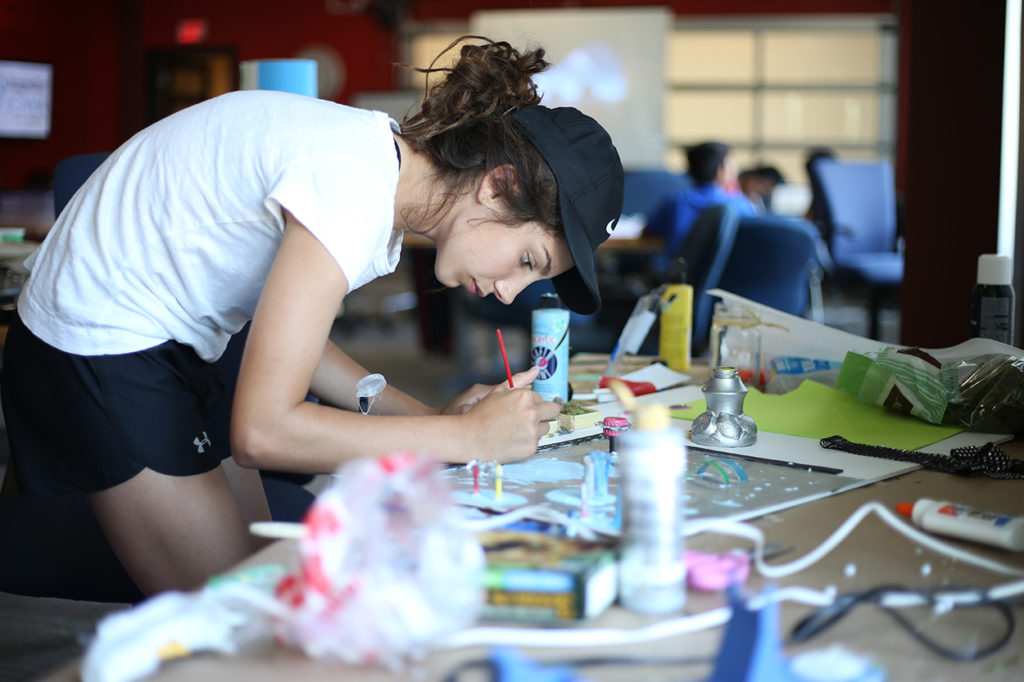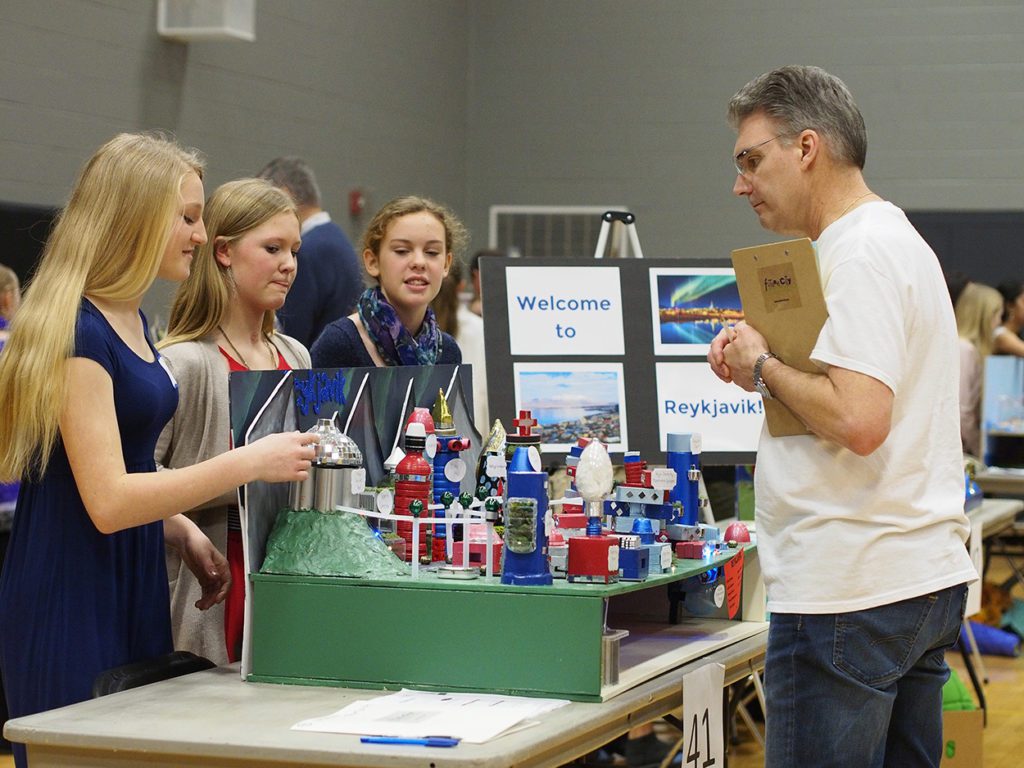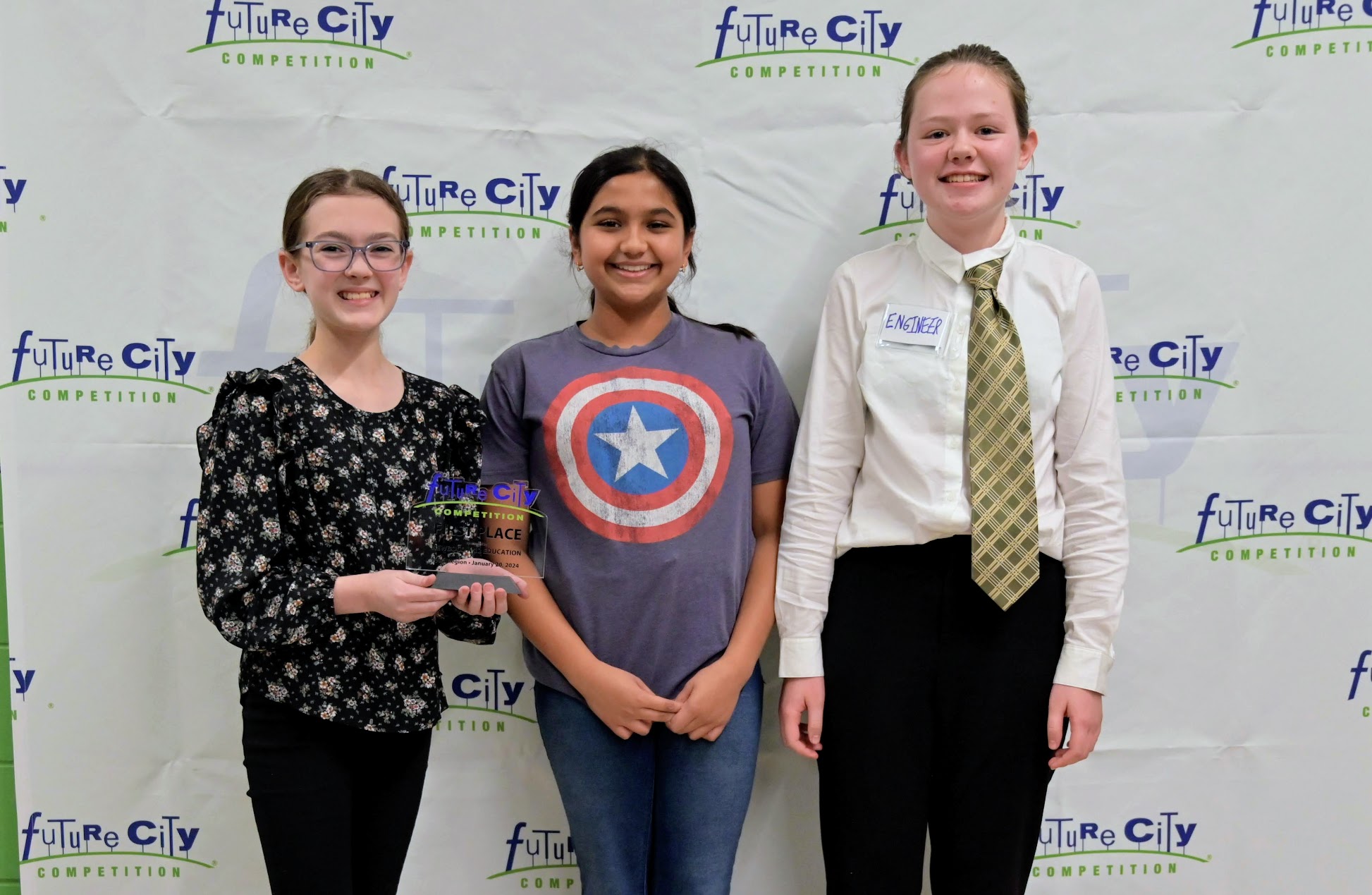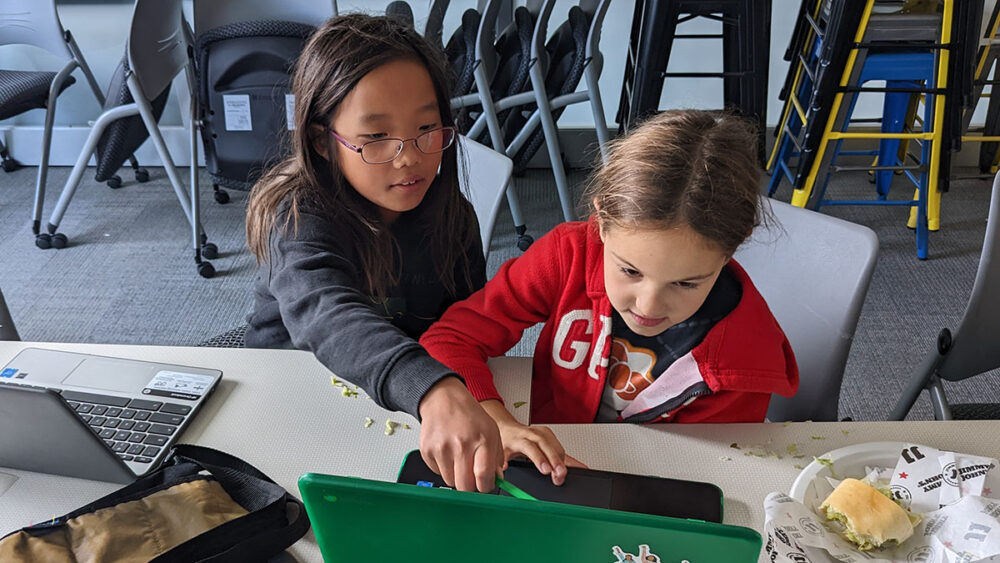Future City Competition
the ultimate stem competition
Future City is a hands-on cross-curricular educational
program that brings STEM to life.
2025 year's theme: “Above the Current.” Design a floating city and provide two innovative examples of how your floating city works and keeps its citizens healthy and safe.
What is future city?
Throughout the fall, participants work in teams of at least three students, an educator, and volunteer mentor to bring their vision of their future city to life. Using the Engineering Design Process (EDP) and project management skills, students showcase their solutions to a citywide sustainability issue.
What's Needed:
Future City challenges students to tackle authentic, real-world problems and is accessible to every student. Here is what is needed to be successful;
- A dedicated program facilitator
- Ability to meet once a week for 2 or 3 hours
- Internet access for research
- Access to different kinds of recycled materials
- A place to build and get messy
- $25 registration fee (per organization)
- Up to $100 budget for model and presentation materials
- Minimum of 3 middle schoolers (but there's no team size limit!)
How can we make the world a better place?
6th, 7th, and 8th-grade students imagine, research, design, and build future cities that showcase their solution to a citywide sustainability issue.

Imagine, research, design and build!
Competition Deliverables
City Essay (50 points)
Teams describe the unique attributes of their city and their solution to the annual challenge (1,500-word max.)
City Model
(65 points)
Teams build a physical model of their city using recycled materials and include one moving part.
City Presentation/Q&A - (72 points)
Teams have seven minutes to present their city's futuristic innovations. Teams then answer questions for a panel of STEM professionals.
Project Plan
(10 points)
Teams develop and use a project plan to help them stay organized and focused.



Congratulations to Kota Kawah, from Linn-Mar Oak Ridge Middle School for receiving First Place in The Future City 2024 Regional Competition!
FAQ
2025 to be annouced.
We highly recommend it. Engineers, architects, and other technical professionals bring practical experience and advice on designing and building the city. We want students to understand how technology impacts our lives. Because of the nature of the competition, a mentor from the engineering community is preferred, but a mentor can be anyone involved in a technical profession.
Each team is required to have a mentor either way, as the Official Team format includes three student presenters, one educator, and one mentor. Mentors can be engineers, technical professionals, architects, urban planners, city managers, or others who work in the engineering and technical community.
The registration fee is waived for Iowa organizations.
For each team, there will be some cost in building the city model, and perhaps a small cost for presentation materials. There is a $100 limit per team for all model and presentation materials, whether direct or in-kind. Schools may solicit support from local community organizations. The model requires students to use recyclable materials, which doesn’t count toward the $100 limit.
It is also permissible for the engineer volunteers to generate or solicit support.
A Competition Expense Form is required from each team Make sure to bring this completed form and all receipts with you to the Regional Competition.
Teachers spend approximately 35-45 hours on the competition. Of course, all teams and coaches are different, but this is a reasonable range to expect. It is the teacher’s responsibility to schedule time for the students and the engineer-volunteer to work together and to oversee work done on the project.
Estimates are:
- Design City: 18 to 20 hours
- Build Model: 20 to 30 hours per student team member
- City Description: 8 hours
- Presentation: 7 hours
Typically, most engineers or mentors devote approximately 12–14 hours. The engineer mentor should be available to provide advice and technical assistance to the students. It is hoped that he or she will be available whenever the students work on the project.
Yes, the Iowa Region permits up to 4 teams from a single school or organization to attend the Regional Competition.
Teams come in all sizes—a whole class, a group of 10 students, or 3 students. As you near competition time, you’ll need to identify the three students who will officially present the team’s work at the Regional Competition.
Absolutely! We strongly encourage all students to attend. However, only the three presenters are eligible for Special Awards and advancing to Nationals if selected.
Generally, teams must be registered online by the end of October.
Each registered school will receive up to two codes which will allow them to download the SimCity software online. Additional codes may be requested by emailing info@futurecity.org, but they are not guaranteed.
Instructions are provided on the Future City National Website, through webinars, and also at Future City resources and the SimCity website.
6th- through 8th-graders can participate.
Great resources include:
- Local Companies related to the theme
- Technical/Engineering Firms
- City/County Officials or
- Engineers
- PTA
- Parents
- Sponsors
- National Engineering and Professional organizations
- If all else fails, contact us!
According to the National Future City Competition Program Handbook, only the top-scoring team from an organization is allowed to advance to the final round of the Regional Competition. We have encountered multiple top-scoring teams coming from the same organization in the past, and this is part of the reason why we have a limit of 4 teams per organization being allowed to compete at the Regional Competition. We want to ensure organizations across the state have the best opportunity to be represented.
Our official name is Future City Iowa. We are a 501(c)3 charitable organization under NewBoCo; all donations are tax-deductible. Our IRS determination letter is available upon request. Please consider contributing!
Similar opportunities to learn with NewBoCo

Girls Who Code Club
Girls Who Code Clubs are spaces where 3rd–6th-grade girls can join our sisterhood of supportive peers and use computer science to change the world. Learn More
